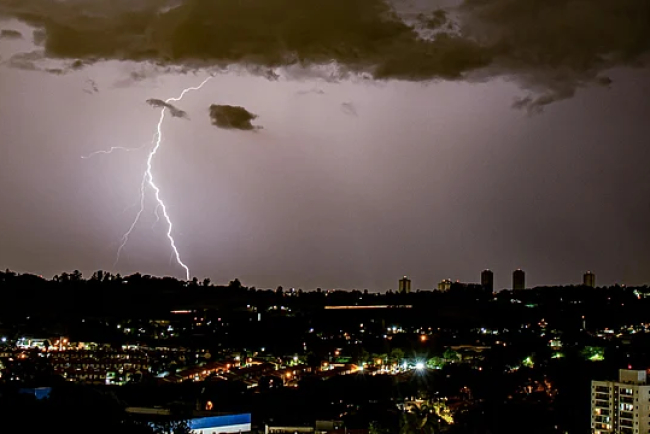India’s Renewable Energy Target Ambitious, But Experts Urge Net-Zero Acceleration
India’s renewable energy targets are ambitious, but experts urge the country to bring its net-zero target forward. Helen Clarkson, CEO of Climate Group, emphasizes the need for stronger climate action, increased climate finance, and better policies to combat misinformation from fossil fuel companies. Despite progress in clean energy, financial constraints and policy challenges remain.

India's climate and renewable energy ambitions have been greeted, but the nation is asked by experts to move its net-zero target forward. Helen Clarkson, CEO of the international non-profit Climate Group, referred to India's track record in clean energy and economic growth with low carbon emissions. She, however, demanded bolder commitments to achieve global climate goals.
India's Renewable Energy Progress:-
India, the world's third-largest greenhouse gas emitter, has pledged to reach net-zero emissions by 2070. It has also pledged to have a 500-gigawatt renewable energy capacity by 2030. While this goal is not part of India's Nationally Determined Contributions (NDCs) to the Paris Agreement, it is a key policy in national energy planning. Clarkson acknowledged India's success in increasing renewable energy, particularly through the National Solar Mission, as a demonstration that economic growth is achievable without excessive reliance on fossil fuels.
Despite the advancement, she urged India to accelerate its net-zero timeline to align with others and reaffirm its commitment to limiting global warming by 1.5°C. Countries are being forced to put their new NDCs for 2031-2035 in this year with the aim of lowering carbon emissions as a whole worldwide.
Challenges in Climate Finance and Policy:-
Clarkson suggested that while solar energy is now the cheapest form of energy ever, its price benefits have not yet reached consumers and businesses. The biggest barrier to faster climate action remains budgetary considerations. She stressed that increased climate finance and access, especially for developing nations and sub-national governments, are needed.
The outcome of last year's UN climate conference in Baku was universally decried. Developed nations, which have long produced most carbon emissions, were to provide a strong financial package to support climate action in the Global South. But they only pledged $300 billion by 2035—far short of the estimated $1.3 trillion annually from 2025. India protested this outcome in strong terms as inadequate.
Influence and Disinformation from Fossil Fuel:-
Clarkson warned that fossil fuel interests continue to fund disinformation campaigns to delay climate action. The campaigns create misleading arguments that net-zero targets are too expensive or hurt jobs, despite overwhelming public support for climate policies. She further stated that financial risk models currently do not include the long-term expense of doing nothing, and thus there is a requirement for a revised investment strategy that is centred on climate solutions.
She also emphasized that while climate scientists have been unable to define the direct correlation between carbon emissions and extreme weather, fossil fuel interests have effectively used simplistic messages to combat climate policies.
The Path Forward:-
India's clean energy push indicates it means business on reducing emissions, but stronger policy action and finance are needed to accelerate the transition. Clarkson stressed that growth does not need to be carbon-intensive, and nations can become rich while reducing emissions. She called for international cooperation to increase climate finance, address false information, and introduce more impactful climate policies.
India remains a key voice in the global climate debate, and its decisions over the coming years will have a significant impact on the fight against climate change. The call for more commitments and finance from developed nations continues, as countries seek to achieve the 1.5°C temperature target of the Paris Agreement.
Source: Climate Group, UN Climate Conference Reports
What's Your Reaction?

















